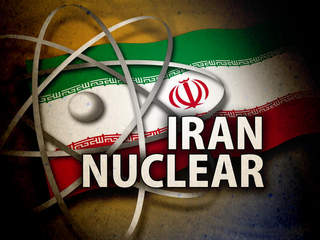The fi rst substantive debate of the Republican primary has broken out between Scott Walker and Jeb Bush, over the Iran Deal. Both Walker and Bush have denounced the deal, and called on Congress to reject it. Walker, however, has said that he would nullify the agreement “on day one.” Bush has called that position unrealistic, and arguing that a newly-sworn-in President wouldn’t be positioned to undertake such a potentially complex arrangement.
rst substantive debate of the Republican primary has broken out between Scott Walker and Jeb Bush, over the Iran Deal. Both Walker and Bush have denounced the deal, and called on Congress to reject it. Walker, however, has said that he would nullify the agreement “on day one.” Bush has called that position unrealistic, and arguing that a newly-sworn-in President wouldn’t be positioned to undertake such a potentially complex arrangement.
Bush has a point – the policy implications aren’t simple, and such a move would have to be part of a broader strategy. That said, there’s no reason that a President-elect couldn’t get that into place before January 20. He’ll have a good idea who his foreign policy team will be, and he’ll have been receiving intelligence briefings almost since election night. If he puts his foreign policy advisors on the job now, they should be able to come up with a strategy by then.
More than anything, this confirms my own fears about electing Jeb president. To be sure, Bush has a lot of assets as a potential president. Unlike some on the right, I’ve never considered Bush to be “progressive” or “lefty.” Anyone who paid the least bit of attention to how he governed in Florida would be hard-put to characterize him that way. His own experience as governor, as well as his discussions with both his father and brother about what it’s like to be president have prepared him better than almost anyone else in the field to serve in the Oval Office.
That said, the two most important qualifications for the White House are temperament and judgment. My own sense that Bush’s temperament, while it might have served well through the bulk of the 20th Century, is ill-suited the situation we find ourselves in.
In the past, periods of Progressive expansion have been followed by periods of consolidation. The changes effected had be largely popular, even if the Presidents implementing them had not. There was an incentive for the succeeding Republicans to be happy keeping things the way they were, and to execute the powers of the office in a relatively conservative way. Coolidge, Eisenhower, and Nixon all followed that pattern. Even Coolidge, who lowered taxes and reduced regulation, and referred to the more activist Hoover as “boy wonder,” didn’t succeed in legislatively rolling back any of Wilson’s 1913 “progress.”
Today, we don’t have that luxury – Obamacare will eat us alive, and our overseas situation will likely be the worst inherited by a President since at least 1981. The EPA has grown into an unelected super-government, and along with its partner in crime, the Department of Interior, is depriving millions of Americans of the ability to make a living, or to better their lives. Moreover, these changes are wildly unpopular. The Iran Deal flies in the face of public opinion; Obamacare was the prime mover in the 2010 elections, and will only become more hated as tens of millions of Americans are forced onto Medicaid.
A Republican president will almost certainly have the backing of a strongly Republican House and Senate. He will likely find state governments that remain overwhelmingly Republican. It’s hard to imagine a better situation in which to devolve power back to the states and away from the executive.
The American people may be exhausted of drama, ready for a period of quietly being able to get on with their lives. What they don’t realize is that neither our enemies abroad, nor our bureaucracy at home, are willing to grant us that.
Bush’s comments suggest that, rather than confront this opportunity head-on, he would maneuver cautiously, and likely end up ratifying most of Obama’s changes. His temperament is one of caution, rather than boldness, at a time when boldness is called for.
Which is why judgment is temperament’s partner.



